Geological and Bioregional Assessments: assessing the prospectivity for tight, shale and deep-coal resources in the Cooper Basin, Beetaloo Subbasin and Isa Superbasin
Lisa S. Hall A , Meredith L. Orr A , Megan E. Lech A , Steven Lewis A , Adam H. E. Bailey A B , Ryan Owens A , Barry E. Bradshaw A and George Bernardel AA Geoscience Australia, Symonston, Australia.
B Corresponding author. Email: adam.bailey@ga.gov.au
The APPEA Journal 61(2) 477-484 https://doi.org/10.1071/AJ20035
Accepted: 17 March 2021 Published: 2 July 2021
Journal Compilation © APPEA 2021 Open Access CC BY
Abstract
The Geological and Bioregional Assessment Program is a series of independent scientific studies undertaken by Geoscience Australia and the CSIRO, supported by the Bureau of Meteorology, and managed by the Department of Agriculture, Water and the Environment. The program consists of three stages across three regions with potential to deliver gas to the East Coast Gas Market. Stage 1 was a rapid regional prioritisation conducted by Geoscience Australia, to identify those sedimentary basins with the greatest potential to deliver shale and/or tight gas to the East Coast Gas Market within the next 5–10 years. This prioritisation process assessed 27 onshore eastern and northern Australian basins with shale and/or tight gas potential. Further screening reduced this to a shortlist of nine basins where exploration was underway. The shortlisted basins were ranked on a number of criteria. The Cooper Basin, the Beetaloo Subbasin and the Isa Superbasin were selected for more detailed assessment. Stage 2 of the program involved establishing a baseline understanding of the identified regions. Geoscience Australia produced regional geological evaluations and conceptualisations that informed the assessment of shale and/or tight gas prospectivity, ground- and surface-water impacts and hydraulic fracturing models. Geoscience Australia’s relative prospectivity assessments provide an indication of where viable petroleum plays are most likely to be present. These data indicate areal and stratigraphic constraints that support the program’s further work in Stage 3, on understanding likely development scenarios, impact assessments and causal pathways.
Keywords: GBA region, regulatory efficiency, user panel, approval processes, sustainable development, Cooper Basin, Isa Superbasin, Beetaloo Subbasin, shale gas, tight gas, deep coal gas, baseline, unconventional gas development, geology, hydrogeology, prospectivity, chemical screening, protected matters, hydraulic fracturing, well integrity, matters of national environmental significance, matters of state environmental significance, causal network, causal pathway, hazard analysis, impact analysis, potential impact, gas resources, water resources.
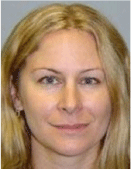
Dr Lisa S. Hall is a Senior Geoscientist at Geoscience Australia, with nearly 20 years of professional experience working across the resources and environmental sectors. She holds a PhD in geology from Oxford University and MSc in geology and geophysics from Cambridge. Lisa is currently working as Director of Operations for the Digital Earth Africa program. |
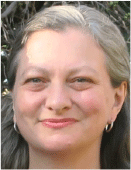
Dr Meredith L. Orr holds a BSc (Hons) from the Australian National University and a PhD in Earth Sciences from The University of Melbourne. She gained 10 years of experience in multidisciplinary research and teaching at Monash University before joining Geoscience Australia. This experience in integrating scientific disciplines informed her contribution to the Geological and Bioregional Assessment Program. Meredith currently works as an Energy Resources Geoscientist in Geoscience Australia’s Minerals, Energy and Groundwater Division. |
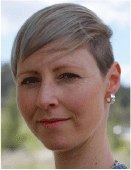
Megan E. Lech holds a BSc (honours) in geology ANU and an MSc in petroleum geoscience from Royal Holloway University of London. As a Basin Analyst at Geoscience Australia, she worked on numerous regional conventional/unconventional petroleum prospectivity, and CO2 storage assessments in frontier and well-explored Australian onshore and offshore sedimentary basins. She also coordinated the offshore Petroleum Acreage Release program and provided input into Geoscience Australia’s regional geochemical surveys. Since retiring in 2020, Megan has two six-month holidays per year and enjoys volunteering at Mulligans Flat Woodland Sanctuary, hiking, baking sourdough bread and training a labradoodle puppy. |
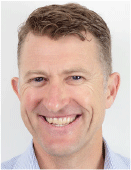
Dr Steve Lewis currently works as a Geologist within the Groundwater Geoscience team at Geoscience Australia. Graduating from RMIT University in the mid-90s, and with an Honours degree from the University of Tasmania, Steve started his career as a Diamond Exploration Geologist with Ashton Mining working in northern Australia and West Africa. Following his PhD at the University of Tasmania Steve started with Geoscience Australia in 2006 and has recently worked on regional-scale multidisciplinary geoscience investigations including the Geological and Bioregional Assessment Program. |

Dr. Adam H.E. Bailey is a Petroleum Geoscientist at Geoscience Australia, with expertise in petroleum geomechanics, structural geology and basin analysis. He was graduated with a BSc (Hons) in 2012 and a PhD in 2016 from the Australian School of Petroleum at the University of Adelaide. Working with the Onshore Energy Systems team at Geoscience Australia, Adam is currently working on the flagship exploring for the Future Program in Northern Australia, and is the Geology Discipline lead for the Geological and Bioregional Assessment Program. |
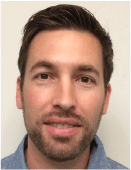
Dr. Ryan Owens is a Geoscientist in Geoscience Australia’s Minerals, Energy and Groundwater Division, Advice, Investment Attraction and Analysis Branch. He was graduated from the Australian National University in 2007 with a BSc in Geology (Hons). Subsequently he worked in mineral exploration before undertaking a PhD in paleoceanography at the Research School of Earth Sciences, ANU. Since joining Geoscience Australia through the graduate program in 2014, Ryan has contributed to a number of projects including the northern Houtman Sub-basin prospectivity study, the geological and bioregional assessments of the Beetaloo and Cooper basins, and the annual Acreage release. Member: PESA, GSA. |
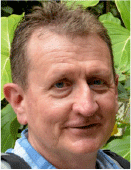
Dr. Barry E. Bradshaw is a Geoscientist with 29 years of experience undertaking geological and geophysical studies and play-based prospectivity studies for conventional and unconventional hydrocarbon resources, geological storage projects and sediment-hosted mineral deposits. Barry is currently employed as the Energy Resources Advice activity leader at Geoscience Australia, and has previously worked as a Principal Geologist at CGSS consultants, Senior Research Scientist at AGSO/Geoscience Australia and Research Scientist at Texas A&M University (the United States). Barry was graduated from the University of Sydney in 1988, and completed a PhD in Earth Sciences at the University of Waikato (New Zealand) in 1991. |

George Bernardel is a Geoscientist in the Offshore Energy Systems section in the Minerals, Energy and Groundwater Division of Geoscience Australia. He gained his BSc (Honours) in Geophysics from the University of Sydney in 1986 and joined Geoscience Australia in 1995. His current role in the project is the seismic mapping of Cretaceous sequences and structure across the offshore Otway Basin. |
References
Bailey, A. H. E., Bradshaw, B. E., Palu, T. J., Wang, L., Jarrett, A. J. M., Orr, M. L., Lech, M. E., Evenden, C., Arnold, D., Reese, B., Skeers, N., Woods, M., Dehelean, A., Lawson, C., and Hall, L. S. (2020). Shale gas prospectivity of the Isa GBA region. Technical appendix for the geological and bioregional assessment: stage 2. Department of the Environment and Energy, Bureau of Meteorology, CSIRO and Geoscience Australia, Australia.Carr, L. K., Southby, C., Henson, P., Costello, R., Anderson, J., Jarrett, A. J. M., Carson, C., Gorton, J., Hutton, L., Troup, A., Williams, B., Khider, K., Bailey, A., and Fomin, T. (2020). Exploring for the future: South Nicholson Basin geological summary and seismic data interpretation. Geoscience Australia, Canberra.
Côté, A., Richards, B., Altmann, C., Baruch, E., and Close, D. (2018). Australia’s premier shale basin: five plays, 1 000 000 000 years in the making APPEA Journal 58, 799–804.
| Australia’s premier shale basin: five plays, 1 000 000 000 years in the makingCrossref | GoogleScholarGoogle Scholar |
Department of Primary Industry and Resources (NT) (2017). Submission 479 to the scientific inquiry into hydraulic fracturing in the northern territory. Available at https://frackinginquiry.nt.gov.au/?a=464723 last accessed 11 January 2019.
Geological and Bioregional Assessment Program (2021a). Beetaloo GBA region. Available at https://www.bioregionalassessments.gov.au/assessments/geological-and-bioregional-assessment-program/beetaloo-gba-region last accessed 11 February 2021.
Geological and Bioregional Assessment Program (2021b). Cooper GBA region. Available at https://www.bioregionalassessments.gov.au/assessments/geological-and-bioregional-assessment-program/cooper-gba-region last accessed 11 February 2021.
Geological and Bioregional Assessment Program (2021c). Isa GBA region. Available at https://www.bioregionalassessments.gov.au/assessments/geological-and-bioregional-assessment-program/isa-gba-region last accessed 11 February 2021.
Hall, L. S., Buchanan, S., Totterdell, J. M., Lai, É. C. S., Langford, R. P., Sundaram, B., Ransley, T. R., Glenn, K. C., Heugh, A., Inskeep, C., Zhu, R., Skeers, N., and Stewart, G. (2018). Rapid regional prioritisation for tight and shale gas potential of eastern and northern Australian basins. Geological and bioregional assessment program: stage 1. Geoscience Australia for the Department of the Environment and Energy, Australia.
Hall, L. S., Wang, L., Bailey, A. H. E., Orr, M. L., Owens, R., Jarrett, A. J. M., Lech, M. E., Skeers, N., Reese, B., and Woods, M. (2020). Petroleum prospectivity of the Beetaloo Sub-basin. Technical appendix for the geological and bioregional assessment: stage 2. Department of the Environment and Energy, Bureau of Meteorology, CSIRO and Geoscience Australia, Australia.
Holland, K. L., Brandon, C., Crosbie, R. S., Davies, P., Evans, T., Golding, L., Gonzalez, D., Gunning, M. E., Hall, L. S., Henderson, B., Kasperczyk, D., Kear, J., Kirby, J., Lech, M. E., Macfarlane, C., Martinez, J., Marvanek, S., Merrin, L. E., O’Grady, A., Owens, R., Pavey, C., Post, D., Rachakonda, P., Raiber, M., Sander, R., Stewart, S., Sundaram, B., Tetreault-Campbell, S., Williams, M., Zhang, Y., and Zheng, H. (2020). Geological and environmental baseline assessment for the Cooper GBA region. Geological and bioregional assessment program: stage 2. Department of the Environment and Energy, Bureau of Meteorology, CSIRO, Geoscience Australia, Australia.
Lech, M. E., Wang, L., Hall, L. S., Bailey, A., Palu, T., Owens, R., Skeers, N., Woods, M., Dehelean, A., Orr, M. L., Cathro, D., and Evenden, C. (2020). Shale, tight and deep coal gas prospectivity of the Cooper Basin. Technical appendix for the geological and bioregional assessment: stage 2. Department of the Environment and Energy, Bureau of Meteorology, CSIRO and Geoscience Australia, Australia.
Lewis, S. J., Bailey, A. H. E., Bradshaw, B. E., Brandon, C., Buchanan, S., Crosbie, R. S., Dixon-Jain, P., Golding, L., Henderson, B. L., Kear, J., Kirby, J. K., MacFarlane, C. M., Martinez, J., Merrin, L. E., Murray, J., O’Grady, A. P., Orr, M. L., Pavey, C. R., Rachakonda, P. R., Raiber, M., Skeers, N., Tetreault-Campbell, S., Williams, M., and Woods, M. (2020). Geological and environmental baseline assessment for the Isa GBA region. Geological and bioregional assessment program: stage 2. Department of the Environment and Energy, Bureau of Meteorology, CSIRO and Geoscience Australia, Australia.
Orr, M. L., Bernardel, G., Owens, R., Hall, L. S., Skeers, N., Reese, B., and Woods, M. (2020a). Geology of the Beetaloo GBA region. Technical appendix for the geological and bioregional assessment: stage 2. Department of the Environment and Energy, Bureau of Meteorology, CSIRO and Geoscience Australia, Australia.
Orr, M. L., Bradshaw, B. E., Bernardel, G., Palu, T. J., Hall, L. S., Bailey, A. H. E., Skeers, N., Dehelean, A., Reese, B., and Woods, M. (2020b). Geology of the Isa GBA region. Technical appendix for the geological and bioregional assessment: stage 2. Department of the Environment and Energy, Bureau of Meteorology, CSIRO and Geoscience Australia, Australia.
Owens, R., Hall, L., Smith, M., Orr, M., Lech, M., Evans, T., Skeers, N., Woods, M., and Inskeep, C. (2020). Geology of the Cooper GBA region. Technical appendix for the geological and bioregional assessment: stage 2. Department of the Environment and Energy, Bureau of Meteorology, CSIRO and Geoscience Australia, Australia.
Royal Dutch Shell (2017). Play based exploration: a guide for Aapg’s imperial barrel award participants. Available at https://iba.aapg.org/Portals/0/docs/iba/Play_Based_ExplorationGuide.pdf last accessed 11 February 2021.
Salter, R., Meisenhelder, J., Bryant, I., and Wagner, C. (2014). An exploration workflow to improve success rate in prospecting in unconventional emerging plays. Paper presented at the SPE/AAPG/SEG Unconventional Resources Technology Conference, Denver, Colorado, USA, August 2014.


